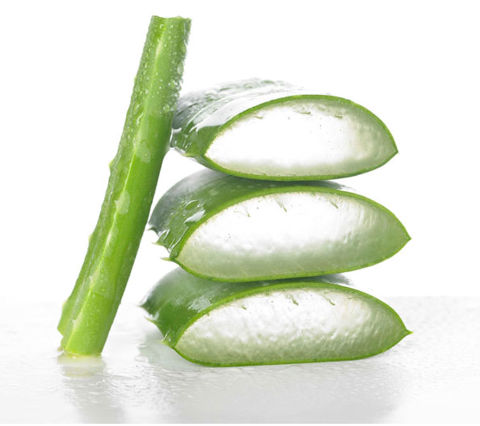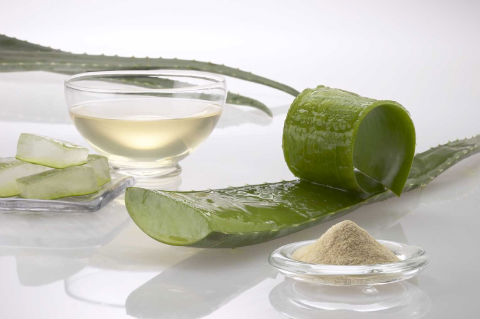Aloe Vera Juice Benefits & Side Effects
Reading Time: 3 minutes
Aloe Vera is one of the most popular plants in the world. Because of Aloe Vera juice benefits, it has a wide range of applications. Even though the benefits of Aloe Vera have been known for centuries, earlier it was mostly used for the treatment of wounds and cuts.
Currently we know a lot more about the benefits of Aloe Vera and it has become one of the most popular natural products. This plant is sold as a juice, gel or powder. However, Aloe Vera has side effects, as well. Let’s take a more detailed look at its pros and cons.

Article Contents:
Aloe Vera is one of the most popular plants in the world. Because of Aloe Vera juice benefits, it has a wide range of applications. Even though the benefits of Aloe Vera have been known for centuries, earlier it was mostly used for the treatment of wounds and cuts.
Currently we know a lot more about the benefits of Aloe Vera and it has become one of the most popular natural products. This plant is sold as a juice, gel or powder. However, Aloe Vera has side effects, as well. Let’s take a more detailed look at its pros and cons.
Aloe Vera Juice Benefits
- Fights weight gain. That gorgeous natural drink helps stimulate the metabolism and burn calories faster.
- It is believed that aloe juice activates the immune system. It can be effective as an immune-stimulating agent in AIDS and certain types of cancer (e.g. Leukemia).
- Lowers blood sugar.
- Fights anemia. Drink it before each meal in order to stimulate the bone marrow to produce new blood cells. The benefits of Aloe Vera juice are also in treating the symptoms of anemia: fatigue and headache.
- Thanks to its anti-inflammatory properties, it reduces inflammation and irritation of the skin and heals burns and wounds.
- It is a natural laxative.
- Aloe juice is a popular cure against acid reflux symptoms, for example, heartburn and stomach pain.
- Improves digestion and cleanses the colon.
- Good for gums and teeth due to antimicrobial properties.
- Good for cleansing and detoxifying the body due to antibacterial, antifungal and antiviral properties.
- Normalizes blood circulation.
- Enhances the capillaries, promotes healthy growth of the capillary network – which generally helps maintain healthy blood circulation and stabilizes blood pressure.

Aloe Vera Juice Side Effects
- Excess intake of Aloe juice can cause: stomach cramps, diarrhea, dehydration and electrolyte imbalance.
- One of its advantages of reducing blood pressure can turn into an important drawback. Hypotensive people need to be careful.
- In some people, the plant causes allergic reactions, rashes and irritation.
- Aloe is strictly contraindicated for pregnant women because it can cause diarrhea. During that period, as well as in breast-feeding, please consult your doctor before using.
- Despite the fact that Aloe juice helps cleanse the colon and stop constipation, its use is contraindicated in some diseases of the gastrointestinal tract (e.g. infarcted bowel, colitis, diverticulitis, hemorrhoids, peptic ulcer).
How To Get The Juice From Aloe Vera
- Fresh aloe gel quickly oxidizes when exposed to air. Therefore, it is very important to prepare all you need to make the juice beforehand. So after having picked a leaf, you should immediately squeeze the gel.
- Pick one or a few leaves of aloe.
- Strip prickly edges with a knife then rinse it under cold water.
- Split an aloe leaf in 2 pieces. Scrape the transparent inner gel out of each part.
- Put the aloe gel into a blender and add some citrus juice – the citrus juice will add stability and strengthen the flavor (orange or grapefruit juice are nice). Mix the ingredients in the blender for about 2 minutes.
- Pour the juice into a sealed container and refrigerate. You can store it for a week, but most of its benefits keep during the first two days.
- Add 2 tablespoons of the gel to a glass of water to get Aloe Vera juice. To boost or weaken the flavor use fruit juice instead of water.
Video: Aloe Vera Documentary
"Test yourselves if you are in the faith; examine yourselves!" - Bibel, 2 Cor. 13:5 10 Questions to Examine and Test Your Faith in GodTest Yourself Now
John Irving
August 22, 2013 @ 1:53 am
Just took it once and it might have saved my life. I was suffering horribly from chronic gastritis after an operation for which I was prescribed low dose enteric aspirin afterwards and was told I had to take it as a blood thinner to prevent blood clots. I was told I needed to take the aspirin for a month but in only 8 days I felt terribly sick. I thought I had no chance of completing the aspirin course. However a shop assistant in a chemist shop where I was enquiring about antacids told me about aloe vera. I was on very strong stomach acid suppressants at the time but they were having little or no effect. I knew I had to give aloe vera a try and after only one day treatment I woke up next morning feeling fine, that was this morning and I have felt OK all day. Amazing, a miracle, that’s what I think and the chemist shop assistant must have been an angel. I can’t express my relief adequately.
Kim
September 10, 2013 @ 7:13 pm
What was the name of the aloe vera you took? Liquid, pills? I have been struggling with gastritis for almost a year and haven’t been able to find long term relief.
John Irving
September 12, 2013 @ 9:58 pm
Hi Kim,
It was Lifestream Biogenic Aloe Vera Juice. 40mls at night and 40mls in the morning on an empty stomach. I also took Mylanta antacid double strength liquid 3 time a day 10mls at a time after meals, in addition I had been prescribed Omeprazole 40mg Capsules by my doctor so I continued taking 1 per day throughout my aspirin course together with the afore mentioned. I don’t think my chronic gastritis has been cured yet but if I keep taking this treatment into the future I think it might. I have now finished with the aspirin and feel ok.
Joanna Yeng
September 27, 2013 @ 11:38 am
Hi John… Yes I am also taking Lifestream Aloe Vera Juice and I love the goodness it has on my health.. It helps to build up your immune system, allergic, etc… Wont give up taking it yet. Have you? Cheers always…
John Irving
September 28, 2013 @ 1:28 am
Hi Joanna, I have stopped taking Aloe Vera yesterday. I had to take aspirin as a blood thinner after an operation and if I didn’t have Aloe Vera I don’t know what would have happened to me, it soothed my stomach. However I’ve found it’s not much help to my gastritis problem at the moment and I can’t understand why. From today I’m still going to take Omeprazole and I will take also an antacid as well, that way I hope to get my gastritis under control. I might return to Aloe Vera later on but I want to see how things go first. I’m totally mystified why the Aloe Vera stopped working, it might have saved my life before.
jose
December 2, 2013 @ 7:39 pm
it is very good nature medicin
Lou
August 27, 2014 @ 1:12 am
I used to drink aloe vera juice and it made me feel more energized and made my abdomen organs feel better. For the past three or four years I ear the gel of a whole leaf once a day and nowadays twice a day because of the bacteria and fungal caused ulcerative colitis. The fresh gel stops the pains and seems to make pains when they occur to stop soon whereas before it didnt. I think I needed to heal the abdomen somewhat so far.. Pineapple fresh after the aloe also helps. sweet fruits dont feel good as it did before unless they are very fresh and not bottled or canned.